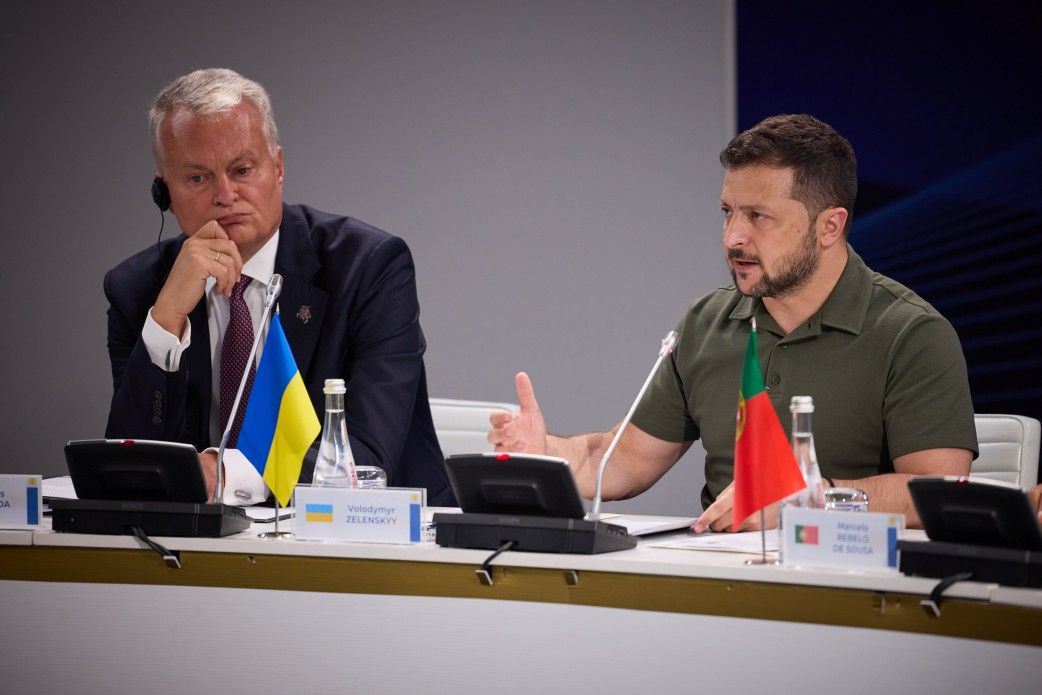Shmyhal: Ukraine wants to use frozen Russian assets for reconstruction of Crimea

Ukraine is looking for ways to confiscate Russian assets frozen in the West and use them to pay for recovery and reconstruction in Crimea and other parts of Ukraine, Prime Minister Denys Shmyhal said on Aug. 23.
Damages caused by Russia in the occupied peninsula amount to at least Hr 120 billion ($3.3 billion), although the exact sum will be known only after Crimea's liberation from Russian occupation, the prime minister said during the Crimean Platform summit in Kyiv.
Ukraine wants to create an international mechanism through which the aggressor would be mandated to pay for all the damages it has caused, Shmyhal added.
"While Crimea is occupied, it is impossible to talk about justice, sustainable peace, security in Europe and an international rules-based order," Shmyhal stressed during his address.
"But our flag will rise again over Ukrainian Simferopol, Sevastopol, Yalta, and other cities on Ukraine's peninsula."
Ukrainian assets lost in Crimea include property of state companies who operated on the peninsula prior to the occupation, such as the oil and gas monopoly Naftogaz.
In February, Russian occupation authorities in Crimea seized over 500 more Ukrainian-owned assets, including banks, tourist infrastructure, and private property.
Western countries have frozen around $300 billion of Russia's Central Bank assets since the start of the full-scale invasion of Ukraine.
While American lawmakers have proposed to transfer the blocked funds to Ukraine to support its post-war recovery, critics have pointed out the legal pitfalls of this move, as sovereign assets are covered by "sovereign immunity" – an understanding that one state will not seize another's property.
In turn, the EU has been exploring options of taxing over $200 billion of frozen Russian Central Bank assets and transferring the profits to Ukraine. According to Bloomberg, windfall profits from these assets could generate up to 3 billion euros ($3.3 billion) in cash and securities.
Kyiv is hosting the third summit of the Crimean Platform, an international consultation and coordination format aimed at ensuring the liberation of the peninsula from the Russian occupation.
Since its inaugural summit on Aug. 23, 2021, it has gathered participants from dozens of countries in Europe, North America, Asia, and elsewhere, as well as non-governmental and intergovernmental organizations, including the EU.
Russia has been occupying the peninsula since 2014 after the Euromaidan Revolution ousted pro-Russian President Viktor Yanukovych.











